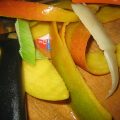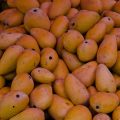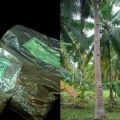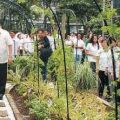n his 2010 TedTalk in Tela-viv, Israel, entomologist Shimon Steinberg reiterated the battle cry of his life’s work as a scientist studying biological pest control: “give nature a chance.”
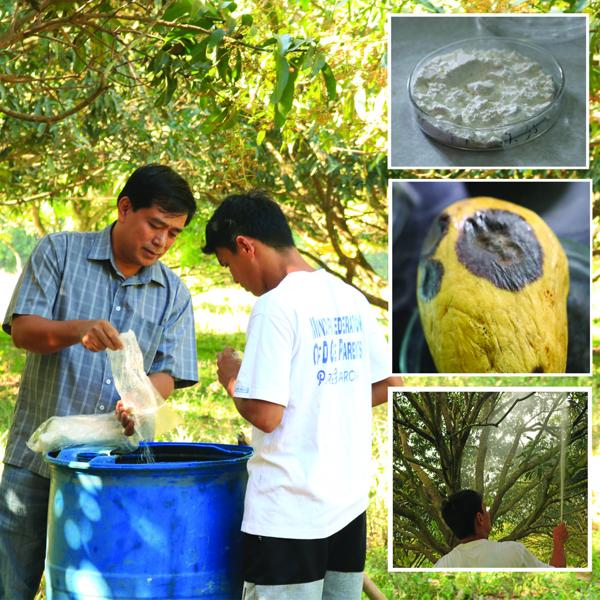
The environment where we practice agriculture has been greatly compromised by the use of chemical inputs such as pesticide and such practice has also lead to what growers dread to be as developed resistance of the pests to chemical control.
Steinberg pointed out the need to reverse these unhelpful agricultural practices by investing on biological control as the means to restore balance to the agricultural plot.
In the Philippines, the National Institute of Microbiology and Biotechnology- University of the Philippines Los Baños (BIOTECH-UPLB) has been a key player in rearing and supporting local farmers towards practicing biological pest control, more popularly known among their farmer partners as a form of organic agriculture.
Dr. Mannix Pedro is among the scientists who are conducting research on non-chemical solutions to ensure the quality of harvested, high-value vegetables and fruit crops.
“Nakita namin yung pag-gamit ng mga chemicals na halos lahat ng high-value crops ay very high ang spray. Minabuti namin na humanap ng natural na paraan para sa ganun man ay hindi maperwisyo ang ating kalusugan sa pag-consume ng fruits and vegetables.”
Dr. Pedro and his colleagues believe that nature has a way of healing itself and so they looked into how they can make use of yeast to lessen the damage caused by microorganisms in harvested fruits and vegetables like mango, banana, bell pepper and eggplant.
While most people know of yeast as a baking ingredient added to dough for it to expand, yeast, in essence, is single-celled fungi which aside from what is used in baking, have other strains that can serve as antagonists that fight disease causing microorganisms in agricultural crops.
After reviewing research done in other countries on the use of yeast as biocontrol, Dr. Pedro and his colleagues set out to test the method among the most commonly exported crops from the Philippines. This was made possible through a project titled, “Yeast as Biocontrol Agent for Postharvest Diseases for High Value Vegetables and Fruit Crops” that was funded by the Bureau of Agricultural Research.
Dr. Pedro would sample out the yeast species residing in mango as well as disease causing microorganisms present in the high-value crop sample. Through in vitro lab analysis, his team would then be able to see which strains of yeast have antagonistic properties against pests, bacteria, or harmful fungi.
After isolating and reproducing the yeast strains that exhibit potential biocontrol properties, BIOTECH would then test out the biocontrol yeast in the form of a powder-like substance mixed with water, sprayed onto the fruits and vegetables.
As of today, BIOTECH-UPLB is focused on testing the yeast product on mango. According to Dr. Pedro, their focus on mango production presents greater urgency because of the farmers’ heavy dependence on chemical. “Matindi ang schedule ng pag-spray ng insecticide and fungicide sa mangga, usually every seven to ten days, seven to eight times bago ito pipitasin,” said Romualdo Yecyec, one of the research staff working with Dr. Pedro.
At present, mango growers across the country depend on this practice to ensure optimal export quality of the mango produce. Dr. Pedro pointed out that one major cause of market loss is the indication of too much chemical residue in mango deeming the produce to fail exporting standards.
From the potential biocontrol yeast isolates that Dr. Pedro has tested in the lab, BIOTECH-UPLB has now been conducting field tests of the finished products in mango plantations within Batangas. He hoped that through further studying the best pest control options nature has to offer, BIOTECH-UPLB can eliminate or reduce the farmer’s dependence on chemical pesticide.
Dr. Pedro is open to collaborating with local farmers who have access to mango plantations and who are willing to offer their area in testing out the biocontrol products developed from the project. ###
——–
For more information, please contact:
Dr. Mannix S. Pedro
National Institute of Microbiology and Biotechnology
University of the Philippines Los Baños
College, Laguna
Phone: (049) 536-1576/2721
Email: mannix23ph@yahoo.com
Source: https://www.bar.gov.ph
